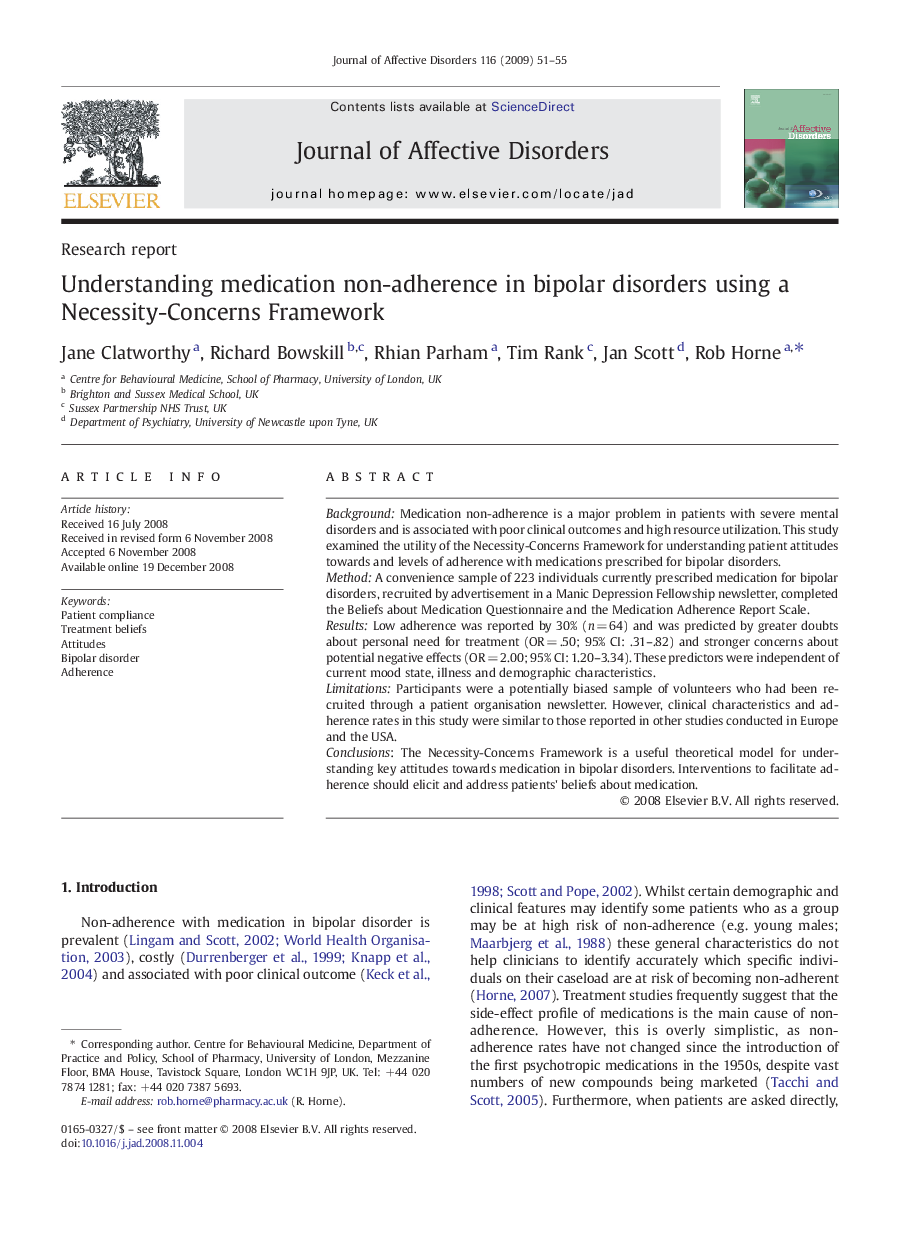| Article ID | Journal | Published Year | Pages | File Type |
|---|---|---|---|---|
| 4187052 | Journal of Affective Disorders | 2009 | 5 Pages |
BackgroundMedication non-adherence is a major problem in patients with severe mental disorders and is associated with poor clinical outcomes and high resource utilization. This study examined the utility of the Necessity-Concerns Framework for understanding patient attitudes towards and levels of adherence with medications prescribed for bipolar disorders.MethodA convenience sample of 223 individuals currently prescribed medication for bipolar disorders, recruited by advertisement in a Manic Depression Fellowship newsletter, completed the Beliefs about Medication Questionnaire and the Medication Adherence Report Scale.ResultsLow adherence was reported by 30% (n = 64) and was predicted by greater doubts about personal need for treatment (OR = .50; 95% CI: .31–.82) and stronger concerns about potential negative effects (OR = 2.00; 95% CI: 1.20–3.34). These predictors were independent of current mood state, illness and demographic characteristics.LimitationsParticipants were a potentially biased sample of volunteers who had been recruited through a patient organisation newsletter. However, clinical characteristics and adherence rates in this study were similar to those reported in other studies conducted in Europe and the USA.ConclusionsThe Necessity-Concerns Framework is a useful theoretical model for understanding key attitudes towards medication in bipolar disorders. Interventions to facilitate adherence should elicit and address patients' beliefs about medication.
